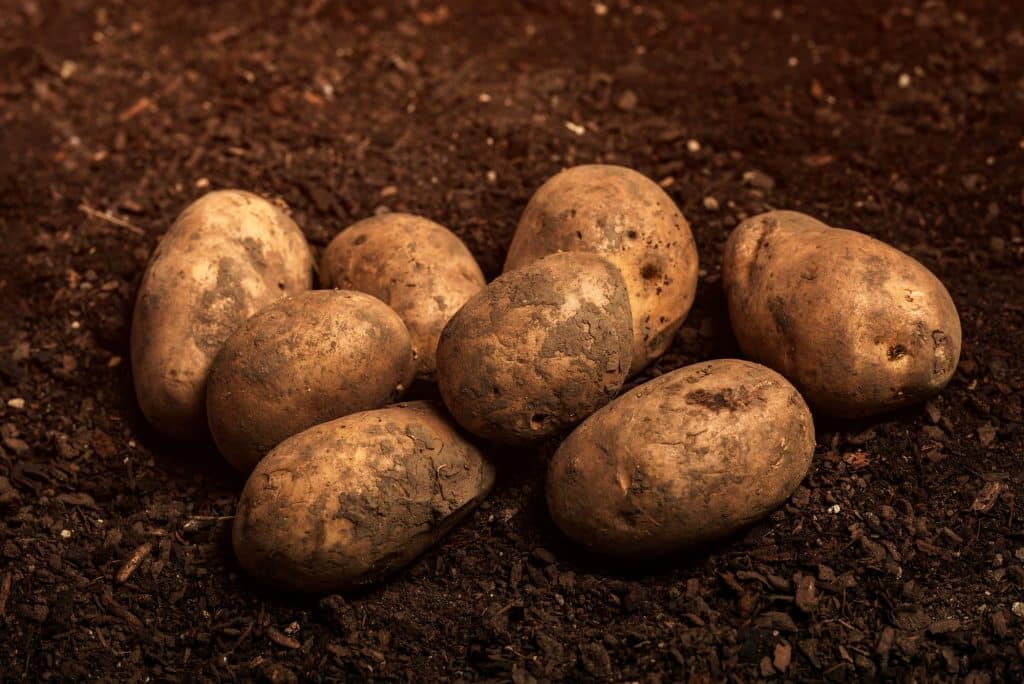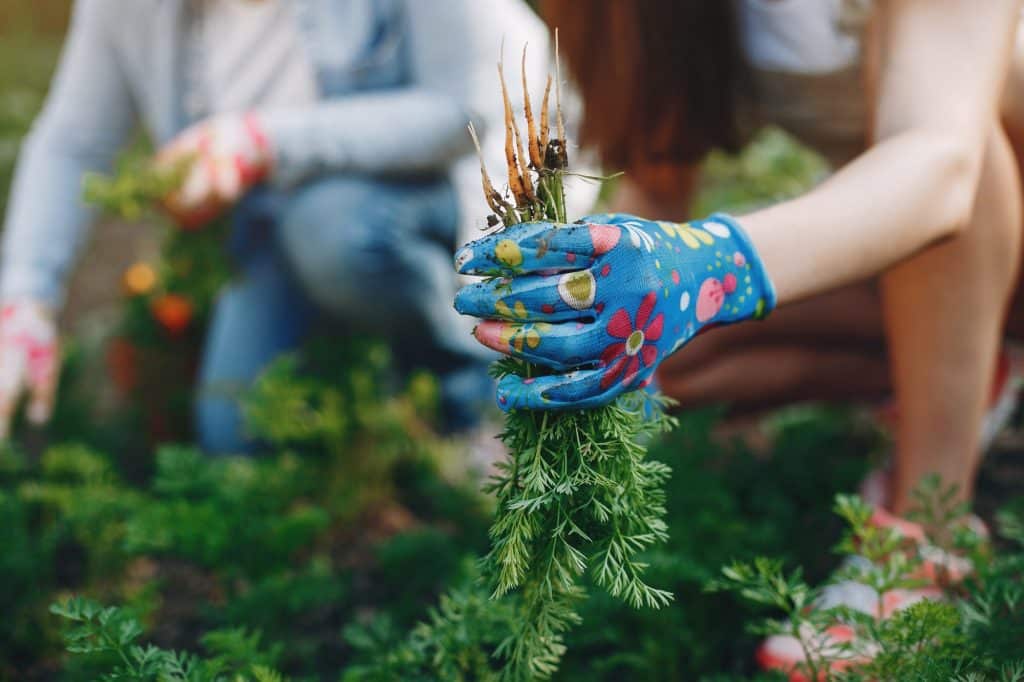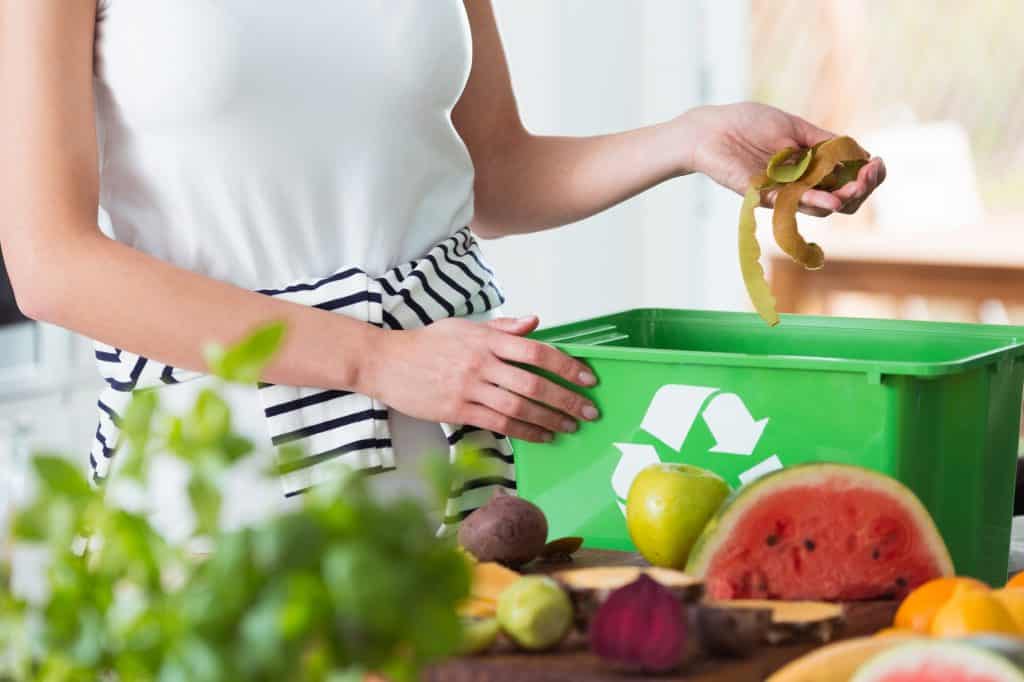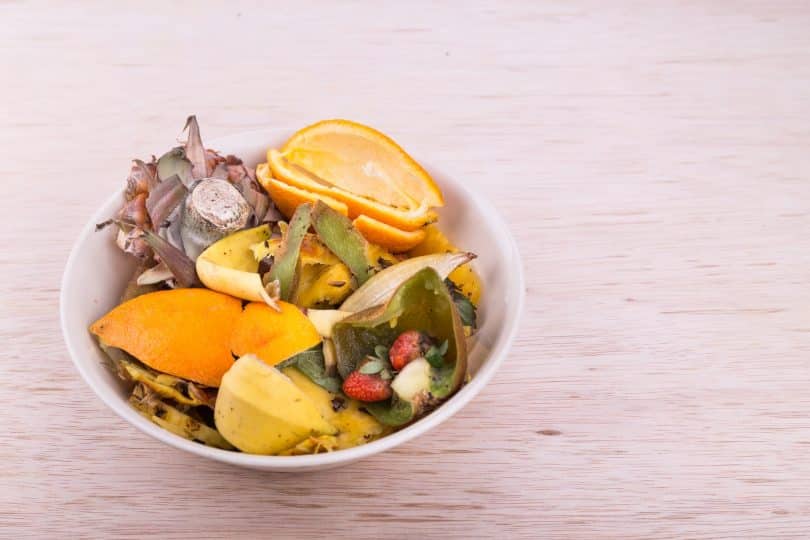If you’ve done any amount of reading on gardening, you’re probably familiar with composting or have at least heard of it. The benefits of composting are many and even if you don’t have a garden, composting is still an awesome thing to do! You’ll waste less, feel better about “wasting” food, and you’ll be at the top of your gardener friends’ lists.

10 Awesome Benefits of Composting
Let’s get started with the why of composting—if you’re a gardener, that’s easy. Free fertilizer! If you’re not a gardener, this first section is for you. We’ll talk about the less obvious reasons you might want to start composting.
It Reduces Kitchen and Yard Waste
This is the single biggest reason most people start composting. What do you do with lawn clippings in spring and fallen leaves in autumn if you don’t want to fill up your trash bins with all that plant material? Let’s face it—it’s a huge waste of space. And if you’re living with a few flatmates, your trash can is probably already overflowing by the time pick-up day rolls around. (How many times have you had to sit down and talk about how you were going to space out the trash so you didn’t have to pay more to have extra trash bags picked up?)
Enter composting. Not only do you not have to feel bad about “wasting” food anymore, but it’ll save you from having to worry about filling up your trash bin before pick-up day. All that extra food and paper waste? Just toss it in the compost pile.
And in autumn when you’ve got almost 10 lawn-and-leaf bags full of dead leaves? More compost, less paying the waste company.
It Doesn’t Hit the Landfill
You might wonder, if compost breaks down so quickly, why should you worry about it getting shoved in the landfill?
The problem with dumping compost materials in the landfill is that they don’t break down quickly with how quickly landfills are packed. Rather than being exposed to the elements, they get smothered and can’t break down as quickly as it could if it had a little breathing room. When it does break down, it produces unhealthy amounts of methane gas.
That goes for things like “eco-friendly” paper products like cups, plates, and other things that claim to break down quickly. They only actually break down in the amount of time on the label if they’re exposed to air and not smothered in a landfill. The stuff in the landfill can take years to break down. And if your eco-friendly products are smothered by a bunch of extra stuff on top, they’re not breaking down as quickly as they could be in a compost pile. (And thus, not quite as eco-friendly as marketers of these products would like you to believe.)

It’s Good for the Environment (More Specifically, Your Garden)
Rather than wondering what’s really in that fertilizer you just bought, you’ll know what’s in it and where it came from. While fertilizers are a bit more regulated and have improved over the years due to a demand for an alternative to chemical fertilizers, they still have a long way to go.
Rather than looking for good fertilizer, you’ll usually be able to just take a trip to the compost bin to get what your garden needs. (Or if you’re not a gardener, what your friend or neighbor needs for their garden!)
It Suppresses Pests and Disease
Compost can enrich your soil, helping your plants say strong and healthy. The better condition your plants are in, the less susceptible they are to pests and diseases. Pests tend not to target healthy plants with strong defenses as much as plants that are already weak and diseased. So you’ll find that taking preventative measures to keep plants healthy will reduce the pests in your garden, reducing the need for pesticides and other treatments.
It Becomes a Home to Lots of Beneficial Organisms
While what kinds of critters make a home out of your compost pile largely depends on how you keep it, you’ll find that a compost bin can be a host to many different kinds of helpers. They do everything from helping break down your compost to aerating and enriching your soil.
How to Start Your Own Compost
Now that you know some of the benefits of composting, let’s talk about how you can start your own compost at home. (Even if you want to start one elsewhere, this section is still useful. Most public composts will want you to know something along these lines, or they’ll have their own rules posted.)
What to Compost
You’ll want to compost things like:
- Produce
- Coffee grounds
- Tea leaves
- Teabags and coffee filters
- Nutshells
- Eggshells
- Paper
- Cardboard
- Prunings
- Lawn clippings
- Corn cobs
- Dead plants (not diseased!)
You don’t want to compost:
- Meat and fish
- Fats and oils
- Dairy
- Weeds
- Black walnut leaves or twigs
- Sawdust in large quantities (it can clump together, preventing quick composting)
- Any plants/lawn clippings/leaves that have been chemically treated
- Diseased/infested plants
Choose a Compost Bin
When you’re looking for a composting bin, keep in mind how you want to do your compost. Do you want something you can tumble and mix frequently, or do you want something stationary that you can do in layers and leave alone for the most part? (If you’re not sure and want to learn about different types of composting, the EPA has some information here.)
Choose a Location
You’ll want a spot that’s easily accessible, shady, and well-drained. You always want to start your compost on soil—stationary compost bins don’t usually have a bottom, so you can just place it over the soil, allowing worms and other critters to get into your compost.
Start Your Compost Pile
Start your compost with a layer of twigs or straw. This helps your compost drain, so if you have issues with drainage in your yard, you’ll want to make sure you have enough to help drain your compost.
Alternate Layers
Think of composting like a giant layer cake. (Okay, maybe that’s a gross comparison, but just think in layers.)
You’ll want to alternate between damp and dry layers. Damp layers can consist of food scraps, tea leaves, coffee grains, etc. Dry layers would be things like straw, twigs, and sawdust. If you have plenty of dry material that will help get air in your compost, you won’t have to worry about turning/mixing it.
If you’re really worried about drainage, compost tumblers are an affordable solution.
Keep Moist, Not Wet
Having a well-ventilated bin will ensure the proper amount of air and moisture in your compost. You don’t want it to stay wet, as it will compact and keep your compost from breaking down as quickly. But you still want it a bit damp, so you might need to water it every now and then.

When You’re Ready to Use Your Compost
Your compost should be very dark, crumbly, and loamy. There shouldn’t be anything super recognizable with the exception of things like corn cobs that take forever to break down. But leaves, grass, and other things that break down quickly shouldn’t be visible.
Your compost can take anywhere from a couple of months to a full year to completely decompose if you’re not tumbling it. If you’re using a tumbler, it’s often done during the first several months. Time to compost mostly depends on what you’re composting, how well ventilated it is, and how much nitrogen you have. (Things like clover, green comfrey leaves, and thin layers of grass clippings are a good source. This helps “activate” your compost pile and speeds decomposition.
Once it’s ready, you can use it as potting soil, mulch, or to sprinkle over raised beds to add nutrients to your garden.
Need something to use your compost on? Check out our guide on starting your own garden!







